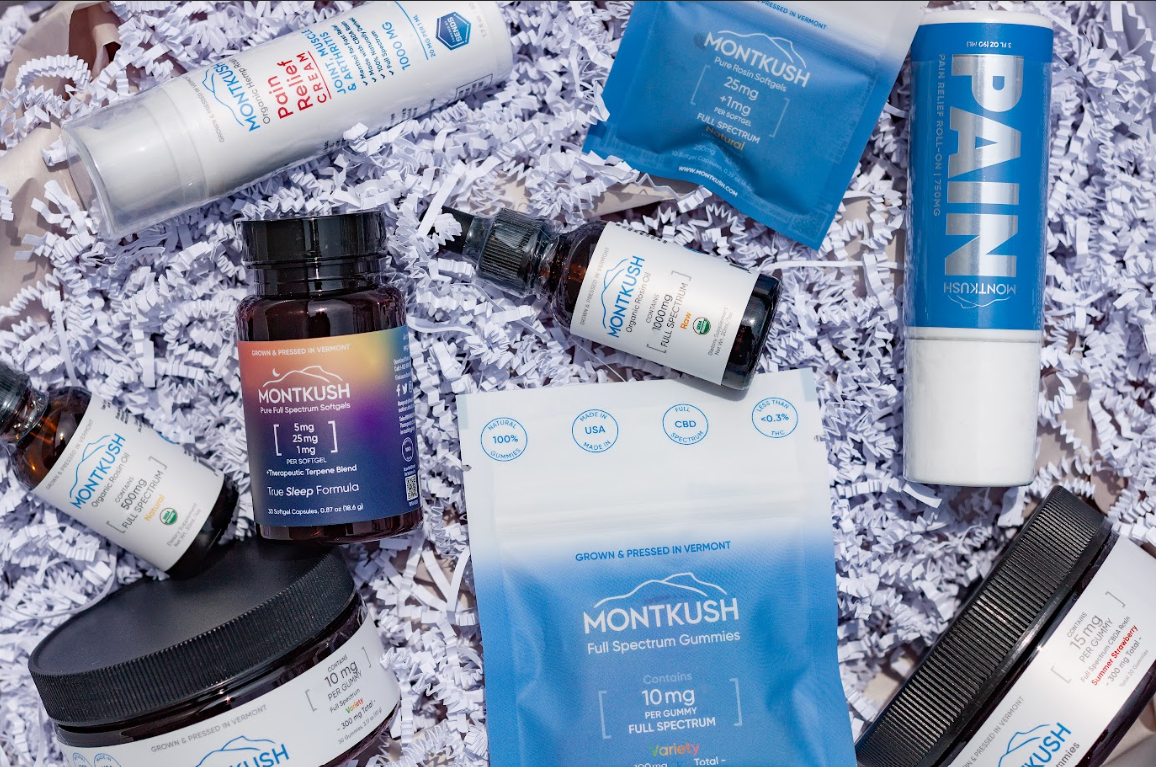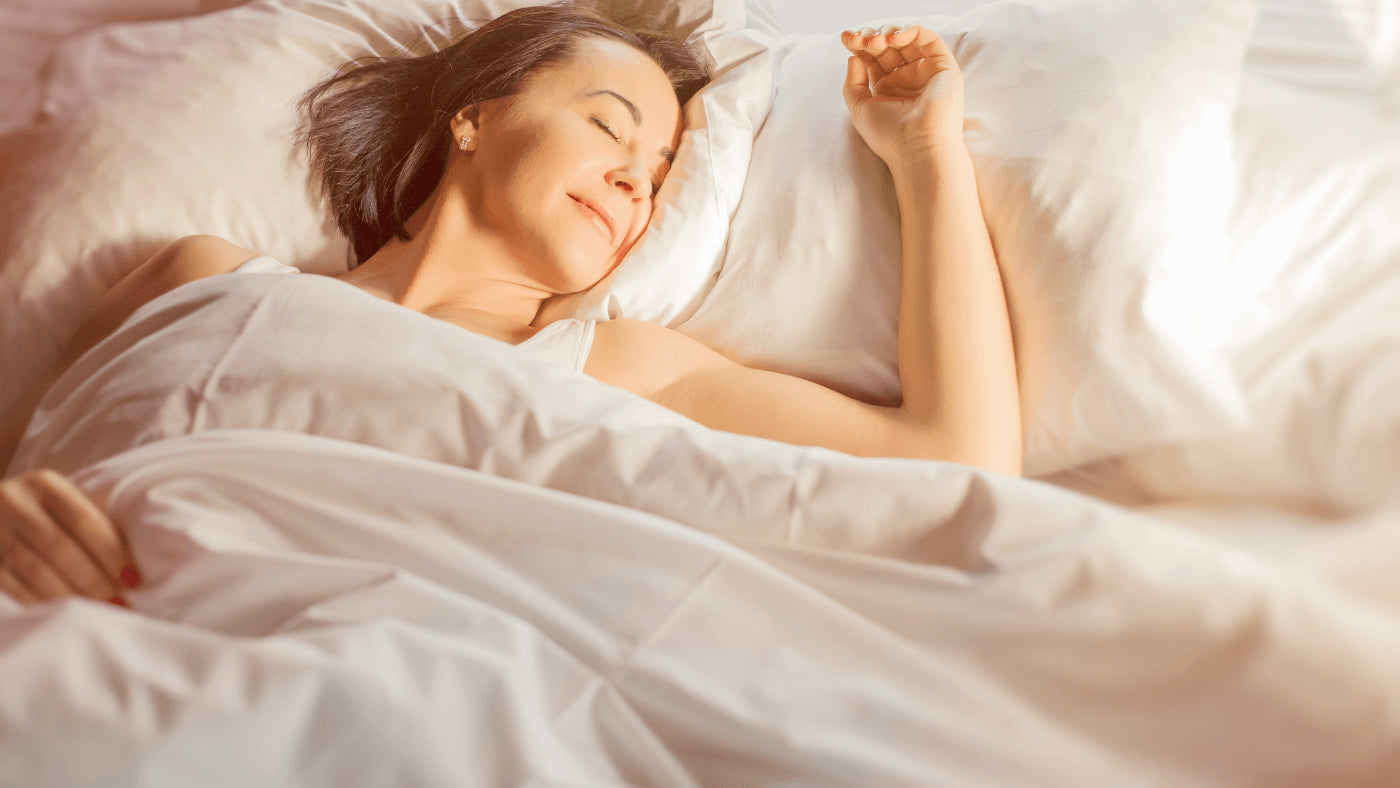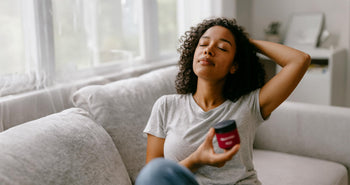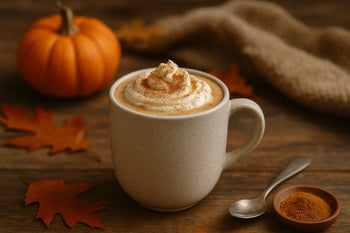

Table of Contents
CBD —it’s everywhere these days, from oils and gummies to skincare and pet treats. As its popularity skyrockets, people are turning to CBD for everything from stress relief to better sleep. But a burning question remains: Does CBD make you tired?
The answer isn’t as simple as you might think. Let’s unpack the science, the scenarios, and the tips to help you understand how CBD (cannabidiol) might affect your energy levels. Whether you’re looking for relaxation, focus, or sleep, this guide covers it all.
How CBD Works in Your Body
Before diving into whether CBD may make you tired, it’s crucial to understand how it interacts with your body.
Spoiler: it all comes down to something called the endocannabinoid system (ECS) .
Understanding the Endocannabinoid System (ECS)
Your ECS is like a master regulator. It helps balance critical functions such as mood, energy, and sleep. Unlike THC, CBD interacts with ECS receptors in your brain and body, influencing these processes without directly binding to them.
This interaction makes CBD a modulator, helping your body maintain balance rather than pushing it in one direction.
CBD is derived from the hemp plant, a variety of cannabis that contains high levels of CBD and very low levels of THC (less than 0.3%). This distinction makes hemp the legal source of CBD in many places, ensuring that the compound delivers its benefits without the psychoactive effects of marijuana.
Beyond balance, the ECS also responds to external factors like stress, diet, and exercise, which means CBD works best as part of a holistic approach to wellness. By targeting imbalances in the ECS, CBD can address the root causes of fatigue, poor sleep, or lack of focus, rather than just masking symptoms.
CBD and Neurotransmitters
Here’s where things get interesting. CBD impacts two key neurotransmitters related to mood and relaxation, and those that may help you fall asleep: Serotonin and Dopamine.
-
Serotonin is linked to mood and relaxation. CBD can promote calmness, helping you feel less anxious or stressed.
- Dopamine influences focus and alertness. While CBD doesn’t directly boost dopamine, it supports balance, keeping you from feeling wired or sluggish.
These neurotransmitters also play a role in sleep quality. Poor serotonin regulation can lead to disrupted sleep cycles, while dopamine helps you wake up feeling refreshed. CBD’s indirect influence on these chemicals makes it a versatile tool for both daytime and nighttime use.
CBD as a Relaxation Aid, Not a Sedative

Unlike sedatives, CBD doesn’t knock you out. Instead, it creates a relaxed state, setting the stage for whatever your body needs—be it energy for the day or restful sleep at night. Think of CBD as a gentle helper, not a heavy-handed solution.
An important distinction is that CBD is non-psychoactive, unlike tetrahydrocannabinol (THC), the cannabinoid responsible for the "high" associated with cannabis. This means CBD won't get you high and won’t impair your cognitive abilities or alter your state of mind. Instead, it works subtly with your body’s natural systems, making it an excellent option for those who want relaxation or relief without the psychoactive effects of THC.
This non-psychoactive nature is one reason CBD has become so popular—it delivers potential benefits without the concerns or legal restrictions often tied to marijuana.
Does CBD Make You Tired or Sleepy?
The effects of CBD on fatigue vary widely depending on several factors, so let’s break them down.
Factors That Determine CBD’s Effect on Fatigue
Dosage :
- Low doses often promote alertness and focus.
- Higher doses are more likely to encourage relaxation.
Timing :
- Taking CBD in the morning may help you stay calm yet focused.
- Evening doses can help you wind down and prepare for sleep.
Individual Body Chemistry :
- Everyone’s ECS is different, so CBD’s effects vary based on metabolism, tolerance, and overall health.
Lifestyle choices also influence how CBD affects you. Combining CBD with a healthy routine—like consistent sleep schedules or balanced meals—is more likely to complement your natural rhythms, helping you feel energized or relaxed as needed.
CBD’s Role in Promoting Relaxation for Sleep
CBD doesn’t act like a sleeping pill. Instead, it reduces stress and calms your mind, creating the perfect conditions for sleep. If you’re tossing and turning due to anxiety or an overactive mind, CBD can help—but it won’t make you drowsy in the traditional sense.
CBD can also help you establish better sleep habits by promoting relaxation without sedation. For example, using it as part of an evening wind-down routine may signal your brain that it’s time to rest, creating a positive association with bedtime.
Are There Potential Side Effects of CBD?

While CBD is generally well-tolerated, it’s important to note potential side effects. These can include dry mouth, dizziness, changes in appetite, or mild drowsiness, particularly at higher doses. Some individuals might also experience gastrointestinal discomfort. To minimize side effects, start with a low dose and gradually increase it while monitoring your body’s response.
Some people feel energized after taking CBD, while others feel relaxed. This variability comes down to dosage, product type, and individual biology. Trial and error is often the best way to figure out how CBD works for you.
Other variables include the type of CBD product you use (full-spectrum, broad-spectrum, or isolate) and how it’s consumed (e.g., tinctures vs. gummies). These choices, along with your goals, play a big role in determining your experience.
Does CBD Affect Everyone the Same Way?
The short answer? No. Let’s dig into why.
Individual Reactions to CBD
Factors like age, weight, metabolism, and health conditions all play a role in how your body processes CBD. For instance:
- Younger, active individuals might find CBD invigorating.
- Those dealing with chronic stress or sleep issues might feel a deeper sense of relaxation.
Your current emotional state also matters. Someone using CBD to alleviate acute stress may experience immediate relaxation, whereas another person using it preventively might feel little to no effect until stress levels spike.
Can CBD Gummies and Other Forms Make You Sleepy?
Not all CBD products are created equal. Here’s a quick breakdown:
- CBD Gummies: Often combined with ingredients for sleep, CBD gummies are ideal for nighttime use.
- CBD Oils and Tinctures: Versatile and fast-acting. Adjust the dosage for energy or relaxation.
- CBD Capsules: Slow-release and steady, perfect for prolonged relaxation.
- CBD Topicals: Localized and chronic pain relief without affecting overall energy or tiredness.
Experimenting with different forms can help you pinpoint the best product for your needs. If you’re unsure where to start, consider consulting a professional for personalized recommendations.
Tips for Using CBD Without Feeling Tired
If you’re worried about CBD making you too tired, these tips can help you use it effectively.
Optimizing Your CBD Dosage
Start low and go slow. Begin with a small dose and gradually increase until you find your sweet spot.
For energy, aim for lower doses.
For relaxation, try higher doses but don’t overdo it.
Documenting your experiences can help you fine-tune your dosage. Keeping a simple journal of how different doses and timings affect you can make a big difference in finding what works.
Choosing the Right CBD Product for Your Goals
CBD products fall into three main categories:
- Full-Spectrum: Contains all cannabinoids, including trace amounts of THC, for a balanced effect.
- Broad-Spectrum: THC-free but retains other cannabinoids for synergy.
- Isolate: Pure CBD, best for those avoiding THC altogether.
Always check labels for THC content and added ingredients, especially if you’re aiming for specific effects like sleep or energy.
It’s also important to note that the Food and Drug Administration (FDA) does not currently regulate CBD products as medications. This means quality and labeling can vary widely between brands. To ensure you’re using a safe and effective product, look for third-party lab testing and certificates of analysis (COAs). These reports confirm that the CBD product contains what it claims and is free from harmful contaminants like pesticides or heavy metals.
By prioritizing reputable brands and reading labels carefully, you can make informed decisions and avoid potential pitfalls.
When to Take CBD for Better Results
- Daytime: Take CBD in the morning or early afternoon for focus and calm without drowsiness.
- Evening: Use CBD an hour or two before bed for optimal relaxation and sleep support.
Consistency is key. Taking CBD at the same time each day helps your body adjust, allowing you to maximize its benefits over time.
Final Thoughts
So, does CBD make you tired? It depends on how you use it, when you take it, and what your body needs. Whether you’re seeking relaxation, focus, or better sleep, CBD offers a versatile solution without the harsh effects of traditional medications.
The key is to experiment. Start with a low dose, choose the right product, and pay attention to how your body responds. CBD isn’t one-size-fits-all, but with a little trial and error, you’ll find the balance that works best for you.
Remember, CBD is here to help you feel your best—whether that means energized, relaxed, or well-rested.
FAQs
What Should I Do if CBD Makes Me Too Tired?
Adjust your dosage or switch to a different product. A lower dose or daytime formula might work better.
Can CBD Help with Daytime Fatigue?
Yes, but only if fatigue is caused by stress or poor sleep. CBD can help you feel more balanced and focused.
Does the Time of Day I Take CBD Affect Whether It Makes Me Tired?
Absolutely. Morning use is better for energy; evening use promotes relaxation.
Can CBD Combined with Caffeine Make You Less Tired?
Yes. Pairing CBD with caffeine can balance out the jitters while keeping you alert.
How Long Do the Effects of CBD Last?
Typically, 4-6 hours. Oils and tinctures act faster but wear off sooner than gummies or capsules.
Can I Take CBD with Other Sleep Aids?
Yes, but consult a doctor first to avoid potential interactions.
Will CBD Make Me Groggy in the Morning?
Not usually. CBD tends to promote restful sleep without the morning grogginess associated with traditional sleep aids.



